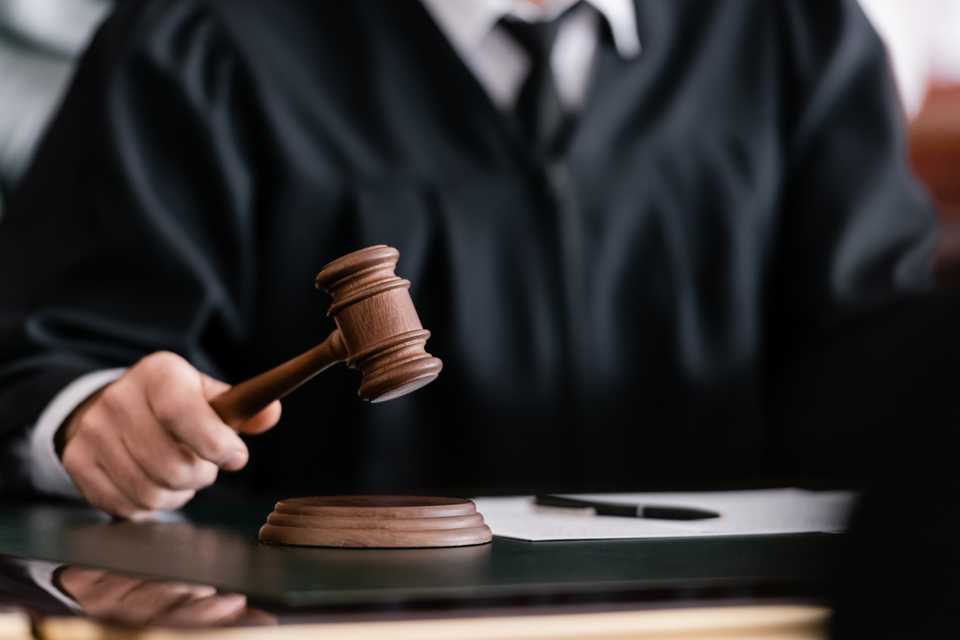Everyone makes mistakes, but when those mistakes are criminal and the consequences can be serious, having the right legal assistance matters! A criminal offence can have serious repercussions, both now and in the future.

If you are facing criminal charges in Newmarket, Ontario, consulting a local criminal defence lawyer immediately is key to receiving the guidance and representation you need to minimize the consequences!
The right criminal defence lawyer can make all the difference in the outcome of your case!
Criminal Defence Lawyers Offer a Wide Range of Services in Newmarket!
Criminal defence lawyers in Newmarket advocate for individuals facing criminal charges.
They offer a variety of legal services that go beyond courtroom appearances! Their role is to protect their clients' rights, navigate the complex legal system, and provide strategic legal advocacy tailored to fit!
From arrest to sentencing, these lawyers accompany their clients through every step of the canadian penal justice process, helping them to understand the charges against them and the possible consequences. These lawyers are there to provide the best defence.
Building the Best Defence
Criminal defence lawyers in Newmarket analyze their client's case, assess potential outcomes, and explore all available defence strategies. Indeed, beyond providing immediate assistance and advice to their client, one of their first tasks is to scrutinize the charges against their client, assess the evidence and ensure that their client's rights have not been breached.
To build the best defence, a criminal lawyer:
- Thoroughly analyzes the evidence against their client.
- Carefully reviews police reports.
- Cross-examines witnesses.
The lawyer also investigates the circumstances of the arrest in order to uncover any violation of their client's fundamental rights.

Criminal defence lawyers develop defence strategies tailored to the unique aspects of each case. This may involve challenging the prosecution's evidence or introducing new evidence to cast doubt on their client's guilt.
The lawyer's primary objective is to secure a favourable outcome, whether by obtaining a not-guilty verdict, having the charges dropped, or, if that is not possible, negotiating a more lenient sentence.
Courtroom Representation
Representing clients in court is an important part of a criminal defence lawyer's job. They play an essential role at various stages of the legal process, including pre-trial motions, bail hearings and the trial itself.
At trial, their main objective is to vigorously defend their client by cross-examining prosecution witnesses, presenting favourable evidence and making compelling arguments on their client's behalf.
Criminal defence lawyers ensure that their client's fundamental rights are protected throughout the legal process in the courtroom, such as:
- The right to be presumed innocent until proven guilty beyond a reasonable doubt.
- The right to remain silent.
- The right to a fair trial.
Their commitment to ensuring that these rights are respected is essential to achieving the best possible outcome for their client!
Negotiating
In some cases, negotiation may be the only option for achieving a favourable outcome! Indeed, when the evidence against a client is unequivocal and no defence is possible, engaging in plea negotiations with the Crown Prosecutor to secure a reduction in charges or alternative sentencing becomes the best strategy.
A lawyer’s skill in negotiating with the Crown Prosecutor can significantly influence the final outcome, potentially leading to a reduced sentence for their client!
Three Criminal Offences Defended by Lawyers in Newmarket!
Of course, regardless of the crime you're charged with, whether it's murder, impaired driving, assault, fraud, money laundering, theft, or any other criminal infractions, you can find a criminal defence lawyerto represent you.

However, to give you a clearer picture of the types of offences handled and the work done by lawyers, here are three criminal offences that criminal defence lawyers in Newmarket commonly deal with:
Drug Charges
In Canada, drug charges fall into two main categories: drug possession and drug trafficking. Each offence has specific legal consequences!
| Offences | Explanation |
|---|---|
| Drug Possession | Possession of drugs is an offence under the Controlled Drugs and Substances Act. It is illegal to possess controlled substances, whether you own them or not. To be found guilty of possession, the Crown Prosecutor must prove that you were aware of the presence of the drug and that you had control over it. This implies that the drugs were on your person or in a space that you control, such as a vehicle or your home. |
| Drug Trafficking | Drug trafficking is not just about selling illegal substances. It also includes giving drugs to another person or keeping them with the intention of returning them to their owner. Even simply offering to sell an illegal drug can result in trafficking charges, without the actual possession of the drug at the time of the offer. |
What Are the Potential Penalties for Drug Offences?
It’s important to note that the Crown Prosecutor's decision to proceed by summary conviction or indictment will directly affect the severity of the penalties imposed on the accused, if convicted.
Penalties for minor drug possession offences range from a fine of between $250 and $500 to combined fines and prison sentences of up to $2 000 and a year's imprisonment for repeat offences.
Penalties for drug trafficking are more severe and depend on the type of drug involved. Trafficking substances listed in Schedules I and II, such as cocaine, methamphetamine, fentanyl, and morphine, carries a maximum penalty of up to 25 years in prison or life imprisonment.
For medium severity classified drugs, such as those listed in Schedule III, sentences can range from 18 months to 10 years' imprisonment. For other drugs considered less serious, such as those listed in Schedule IV, the maximum penalty is one to three years' imprisonment.

In short, the nature of the drug, the quantity in possession and the repeat offence of the accused play a crucial role in determining the penalties incurred.
What Is the Role of a Criminal Lawyer in Drug Charges Cases?
When a person is charged with drug trafficking or possession, a defence lawyer plays an essential role in protecting their rights and ensuring a fair trial. Drug investigations frequently involve searches of people, vehicles and homes, and the rules governing these searches are complex.
An experienced criminal lawyer will be able to spot potential violations of their client's rights, such as an illegal search!
Indeed, the defence lawyer is responsible for analyzing the evidence, checking the procedure followed by the police and building a solid defence that will challenge the Crown's version of the facts, while ensuring that the client's fundamental rights are respected. The lawyer's work helps to reach a favourable verdict or a reduced sentence.
Sexual Assault
Sexual assault is unwanted physical contact of a sexual nature. Any intentional act involving non-consensual contact can be considered sexual assault, such as cuddling, kissing, unwanted touching, or non-consensual sexual acts.
The sexual nature of unwanted contact is determined by:
- The act itself and the circumstances
- What part of the body was touched
- What was the nature of the contact
- What words were spoken or gestures made
- The location

The Crown must prove all the elements of sexual assault beyond a reasonable doubt:
- Actual physical contact
- The contact was of a sexual nature, and
- The contact was made without consent.
What are the possible consequences of a sexual assault charge?
The penalties for a conviction of sexual assault depend on the type of unwanted contact, the age of the complaining witness, the existence of a relationship of trust between the complaining witness and the accused, and the use of force or weapons. Sexual assault is a hybrid offence, which allows the Crown to decide whether to proceed by summary conviction or by indictment.
Penalties in the event of conviction are determined by the surrounding circumstances:
- Summary conviction: imprisonment for a term of not more than 18 months or, if the complainant is under the age of 16 years, to imprisonment for a term of not more than two years less a day and to a minimum punishment of imprisonment for a term of six months.
- Indictment: up to 10 years’ imprisonment, or if the complaining witness was under 16, a minimum of one year's imprisonment and a maximum of 14 years’ imprisonment.
A conviction means compulsory registration on the National Sex Offenders Register. This designation can affect where you live, what jobs you can have, and what you drive, and requires any change of residence or employment to be reported to the police.
There are three types of sexual assault!
In addition to sexual assault, there are two other more serious types of sexual assault with more serious consequences:
- Sexual assault with a weapon, threats to a third party or causing bodily harm:
Sexual assault with a weapon, threats to a third party, or causing bodily harm involves actions such as using or threatening to use a weapon, causing bodily harm, or choking the complainant.
The penalties for sexual assault with a weapon or involving threats or bodily harm vary. If a restricted firearm is used or the offence is linked to a criminal organization, the offender can face up to 14 years in prison, with a minimum of 5 years for a first offence and 7 years for subsequent offences.
If any firearm is used, but not in association with a criminal organization, the minimum sentence is 4 years. If the complainant is under 16 years old, the offender faces life imprisonment with a minimum of 5 years. In other cases, the maximum sentence is 14 years with no minimum punishment specified.
- Aggravated sexual assault:
Anyone commits an aggravated sexual assault who, in committing a sexual assault, wounds, maims, disfigures, or endangers the life of the complainant.
The penalties for aggravated sexual assault vary. If a restricted firearm is used or the offence is linked to a criminal organization, the offender can face life imprisonment, with a minimum of 5 years for a first offence and 7 years for subsequent offences.
If any firearm is used, but not in association with a criminal organization, the offender faces life imprisonment with a minimum sentence of 4 years. If the complainant is under 16 years old, the offender faces life imprisonment with a minimum of 5 years. In other cases, the maximum sentence is life imprisonment with no minimum punishment specified.
The Importance of a Defence Lawyer for Sexual Assault Charges
A defence lawyer examines the methodologies and actions of the police, as well as the evidence that has been gathered.
An effective defence for sexual assault charges is built by examining the evidence and questioning the credibility of witness testimony to construct a counter-narrative to contradict the Crown's version of what might have happened. The job of a criminal defence lawyer is to introduce reasonable doubt!

A credible and effective defence for sexual assault charges can be constructed in a number of ways, all depending on the facts of each individual case:
- Gathering documents, photographs, texts, witness statements, and scientific analysis, including DNA, that will contradict the charges.
- Assembling evidence that will undermine the credibility of prosecution witnesses, the victim and other witnesses.
- Exploring whether there were any circumstances that raise doubts about the reliability of the witnesses. Were they intoxicated or under the influence of drugs?
- Evaluating police methods to ensure that investigations, interrogations and the gathering of evidence were conducted in compliance with the Canadian Charter of Rights and Freedoms.
Theft and Robbery
Theft and robbery are distinct and separate criminal offences in Canada!
Theft is the intentional taking of property-tangible objects as well as money and services-that belongs to someone else. To commit theft, it is not necessary to interact directly with the owner of the property. The degree of theft is determined, in part, by the value of the property stolen. $5 000 is the threshold value.
Robbery is theft of property taken directly from the person and involves intimidation, force or coercion. Because of the threat of physical harm, robbery is generally a more serious offence. The use of a weapon in the commission of a robbery can increase the level of the criminal charge.
What are the possible consequences of a theft and robbery charge?
The penalty for a conviction of theft of property under $5 000 could be imprisonment for up to 2 years. But for a summary conviction, the penalty is up to 6 months' imprisonment and/or a $2,000 fine.
Theft of property worth more than $5 000 is an indictable offence punishable by up to 10 years' imprisonment.
Every person who commits robbery is guilty of an indictable offence. If a firearm is used during the commission of a robbery, the maximum sentence is life imprisonment.
For a first offence, the minimum sentence may be five years, while a second offence requires a prison sentence of at least seven years. A robbery committed under any other circumstances carries a maximum sentence of life imprisonment, with no specified minimum punishment.
What Is the Role of a Criminal Lawyer in Theft and Robbery Charge Cases?
If you have been charged with theft or burglary, you need a criminal defence lawyer who is competent and experienced in these types of charges!
A competent lawyer will be able to prepare an effective defence in your case, examining the evidence, the testimony given and the actions of the police. A lawyer will then use this information to develop a plausible narrative that will introduce reasonable doubt into the Crown's version of the facts and events.
The criminal lawyer will build a defence that will be based on the particular facts and circumstances of your case and will usually involve:
- Following the Crown closely to ensure that your defence receives all the evidence in their possession as quickly as the law requires.
- Examining physical evidence, such as photographs, texts and other documents.
- Scrutinising witness testimony for errors or contradictions.
- Exploring the background and circumstances of witnesses to uncover facts that may call into question their reliability, such as a history of drug or alcohol impairment.
- Skillfully use all available information to develop a credible narrative that creates reasonable doubt in the Crown's story.
JuriGo help you Find the best Criminal Defence Lawyer for You in Newmarket, Ontario!
If you have been charged with one of the three offences listed above, or with any other offences, it is essential that you retain the services of a criminal defence lawyer without delay. Their expertise and knowledge will ensure that you receive a proper defence.
A criminal defence lawyer in Newmarket will provide customized legal advice, carefully examine the evidence, interview key witnesses, and oversee all aspects of the trial. A lawyer will consider all possible defence strategies and, if necessary, negotiate with the Crown Prosecutor to obtain the most favourable outcome for your case.
With the advice of a good criminal defence lawyer in Newmarket, your chances of being acquitted increase considerably. Even if an acquittal is not possible, they will work to minimize your sentence and protect your rights throughout the court process.

JuriGo offers a quick and straightforward way to find a criminal defence lawyer in Newmarket, Ontario! Our service ensures confidentiality, is completely free, and involves no obligation.
Just complete our request form with details about your situation, and we will swiftly link you with a criminal lawyer in your area. Begin your defence journey effortlessly with JuriGo!